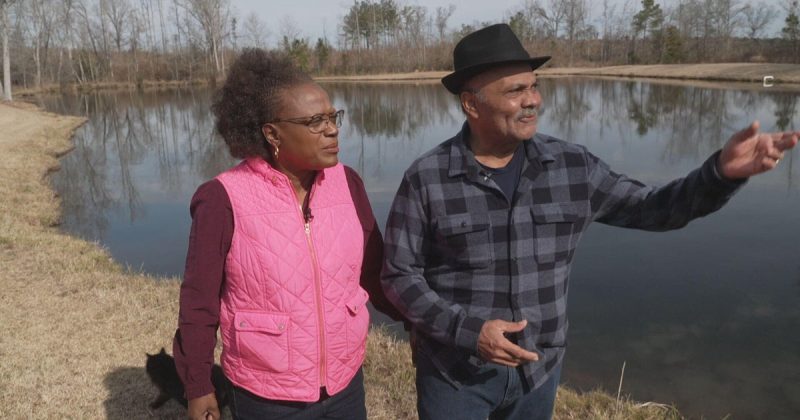
The Smiths, a Georgia family, are locked in a David-versus-Goliath struggle against a railroad company seeking to seize their ancestral land through eminent domain. For generations, this 600-acre property has been a testament to their family’s resilience, passed down from a sharecropper grandfather who traded his cotton harvest for the land during the Jim Crow era. Now, the Sandersville Railroad Company aims to carve a new track across their land, invoking eminent domain – the power of the government or private utilities to take private property for public use, with compensation.
Mark and Janet Smith, the current stewards of the land, express profound dismay at the prospect of losing even a sliver of their heritage. They’ve led a community coalition resisting this forceful acquisition, emphasizing the emotional and historical significance of the property. Their fight isn’t just about land; it’s about preserving a legacy forged through generations of hardship and perseverance. The legal battle has already seen setbacks, with a state judge ruling in favor of the railroad company. This ruling, however, hasn’t dampened their spirits, and the coalition is pursuing an appeal.
The railroad company, while acknowledging the legal precedent in their favor, suggests a willingness to negotiate a mutually beneficial outcome. They highlight the potential economic benefits for Sparta, a county among the poorest in Georgia, estimating a $1.5 million boost from the project. This economic argument, however, fails to address the deeply personal and historical stakes for the affected families. Sparta’s mayor expresses sympathy for the residents but also points to the potential economic advantages.
The core of the conflict lies in the clash between economic development and the preservation of individual rights and community history. For the Smiths, and many others in Sparta, the fight is about more than just financial compensation; it’s about protecting their way of life and preventing the erasure of a significant family legacy. The legal battle continues, and the outcome will have far-reaching implications for both the Smiths and the community they represent, raising important questions about the balance between public good and private property rights in the face of powerful corporations and eminent domain. The Smiths’ story underscores the human cost of economic development and the enduring power of family legacy in the face of adversity.










